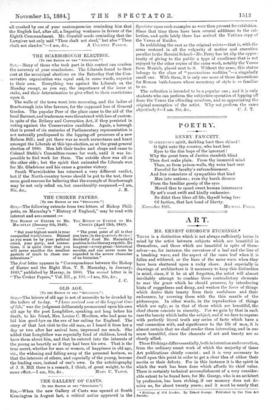THE SCARBOROUGH ELECTION.
[To THE EDITOR OF THE " SPECTITOR.”1 &s,—Many of those who took part in this contest can confirm the accuracy of your conclusions. The Liberals found to their -cost at the municipal elections on the Saturday that the Con- servative organisation was equal and, in some wards, superior to their own. Everything was against the Liberals on the Monday except, as you say, the importance of the issue at stake, and their determination to give effect to their convictions upon it.
The walls of the town went into mourning, and the ladies of Scarborough into blue favours, for the supposed loss of General Gordon. The popular Peer of the place came to the aid of the local Baronet, and tradesmen were threatened with loss of custom, in spite of the Bribery and Corruption Act, if they persisted in voting against the Conservative candidate. Again, a borough that is proud of six centuries of Parliamentary representation is not naturally predisposed to the lopping-off processes of a new Reform Bill ; and yet there was as much earnestness and heart amongst the Liberals at this bye-election, as at the great general election of 1880. Men left their trades and shops and came to Colonel Steble's Committee-rooms for work, until it was im- possible to find work for them. The outside show was all on the other side ; but the spirit that animated the Liberals won for Mr. Gladstone and his cause a genuine victory.
South Warwickshire has returned a very different verdict, but if the North-country towns should be put to the test, there -seem good reasons for believing that the example of Scarborough may be not only relied on, but considerably surpassed.—I am,


































 Previous page
Previous page